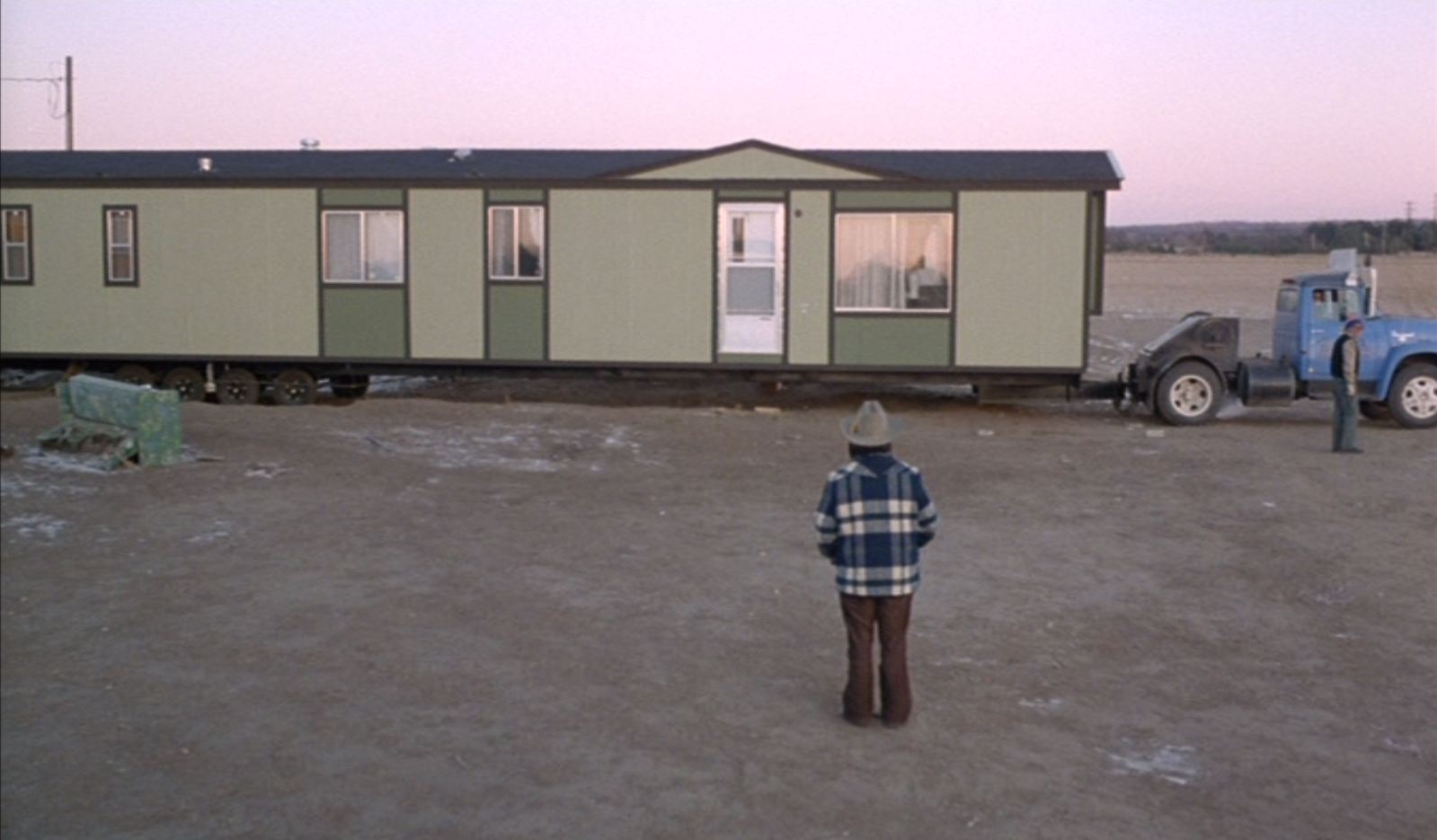Stroszek: a life of crime

Werner Herzog's Stroszek communicates, through a series of increasingly terrible events, the criminality of the quiet life. Stroszek is punished in Germany, for what, we aren't sure (I don't mean the prison system here; that element is more abstract -- I'm talking about the pimps who destroy his home and beat him up). Maybe it is because he is small, or because he's a little weird, or because the girl moves back in with him -- but I'd like to posit that it's only because he's there that he receives such brutal treatment -- because he doesn't do anything, and that's the worst thing someone can do.
We see this again when he moves to the united states. His home is repossessed by a banker who couldn't be, on the surface, farther from the pimps who destroyed Stroszek's life in Germany, yet plays essentially the same part -- he won't leave Stroszek alone, he invades his home, and eventually drives him out of it (or, in a more literal phrasing, drives Stroszek's home away from him). All because Stroszek is doing nothing -- he has nothing, he attempts to do nothings, he is floating in a sea of happening remaining unchanging.
My last thoughts of this brief post on Stroszek are on the cyclical nature of the film -- our static hero is released from captivity at the beginning of the film, reluctantly so, and by the end he is almost captured again, although this time he escapes with his life (this isn't meant to be a joke -- I've never understood that stupid expression, and I think it makes more sense to say "he escaped with his life" about a man who died). This implies a cyclical nature to Stroszek's life that is only concluded by his (probable) death.
I really like your idea of the criminality of quiet life. I think this could probably be expanded and looked at in terms of "the American dream" and how that is portrayed in the movie, especially with Herzog's choice to have Bruno go to the middle of nowhere Wisconsin rather than a big city.
ReplyDeleteWhen we first started watching "Stroszek," I had always noted its cynical tone, but I never thought it go so down south towards the end. It felt almost bit anticlimactic in a way, which I guess it was meant to be and probably fits with the film's overall theme of misfortune and unmet expectations.
ReplyDeleteI definitely see the parallel between the man from the bank and the pimps back in Germany. You are right in noticing that the characters do the same thing, yet I don't believe that it's because Bruno is doing nothing. Yes, Bruno doesn't provoke any of them, but I do not think he was thrown out of his homes because of his simple life. Perhaps that's the meaning of the film– big people push little people around. But if you want to see an example of someone doing nothing, check out the picture of Eva on my blog..
ReplyDeleteYou are right; I hadn't fully realized it before, but Bruno doesn't really try to do jack shit to help himself. He just lets things happen to him. He's a nice guy (at least in the beginning), but he's pretty helpless.
ReplyDelete